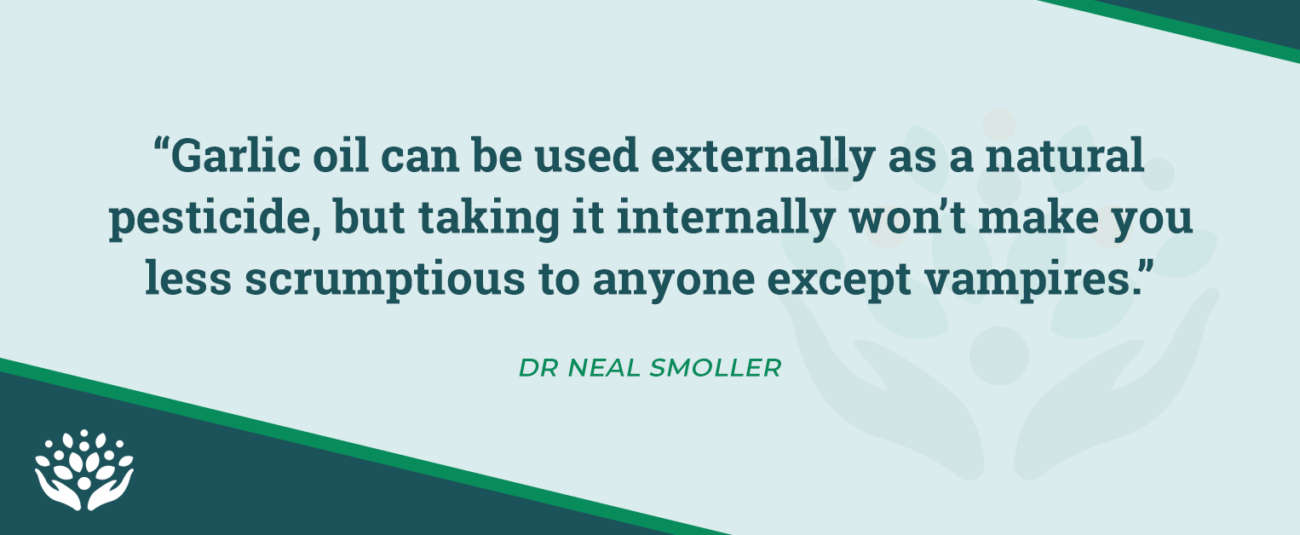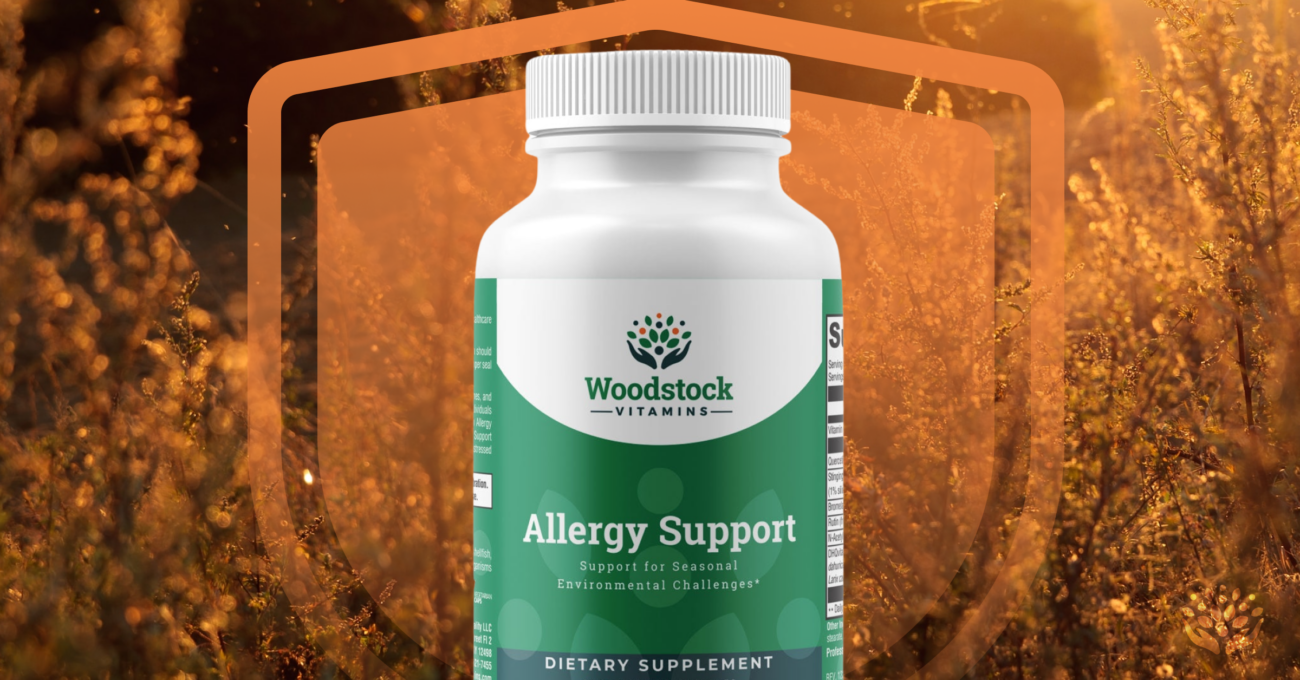
Spring and summer are genuinely magical seasons full of endless possibilities…for allergies and discomfort, that is. Some days, all the fresh air and sunshine in the world can’t outweigh the sneezing fits and itchy bug bites.
But what’s more exciting than staying indoors all day to avoid the pollen and pests, right? At least you’ll have plenty of tissues and anti-itch cream to keep you company!
Or, maybe, just maybe, there’s a better way.
Whether you’re hoping to soak up the sun, break a sweat, or simply take in the sights, it’s essential to prepare for the pesky nuisances the new season brings. From seasonal allergies to mosquitos, poison ivy to ticks, these unwelcome guests can quickly spoil the fun.
Here’s your chance to get equipped with holistic remedies for treating bug bites and natural methods for pest management — ones that actually work — so you can get back to enjoying all the great outdoors has to offer.
No one wants to waste the warmer days in an endless battle against the bugs and pollen, we get that.
But before you whip out your arsenal of DEET-based insect repellants and antihistamines, why not try taking a walk on the wild side? The wildly natural side, of course.
Learn More: Essential Oils for Pest Control | Dr. Neal Smoller
Although DEET-based insect repellants are effective — and harmless, if used appropriately — we prefer to steer clear of such products when natural methods for pest management are just as viable and smell better, too.
Let’s keep it real, though. Despite what you may have heard on TikTok, not every essential oil works for repelling bugs, preventing bites, and keeping your home pest-free.
So we asked Dr. Neal — Woodstock Vitamins founder, holistic pharmacist, and resident Wellness Wizard — for his advice on using essential oils effectively and strategically. When it comes to repelling pests with essential oils, Dr. Neal likes to use them in two ways:
Because nothing says, “home sweet home,” quite like a cotton ball soaked in fragrant essential oils that also keeps the creepy-crawlies away!
(Just be sure to replace those cotton balls and clean your diffusers regularly, or else your home might start to smell like a moldy old attic instead.)
Using essential oils to repel pests is like killing two birds, or fleas, with one stone — they not only brighten your day and soothe your soul but also repel pesky bugs when used properly.
Keyword: properly.



Let’s look at the essential oils that can be used to target specific pests. Just remember, if you utilize these aromatics strategically, the bugs will flee and you’ll smell fantastic!
Some other essential oils that are less potent and can be found in natural insect repellents include rosemary, basil, thyme, and 2-undecanone, which is an essential oil extracted from tomato plants.
Garlic oil possesses insecticidal properties, so a diluted solution can be applied directly onto plants to deter bugs.

Although not classified as an essential oil, soybean oil is often incorporated in natural insect sprays as an ingredient in essential oil blends. Soybean oil does not directly repel insects, but it helps to extend the effectiveness of essential oils.
This spray is so easy to make, use, and become obsessed with, you’ll be wondering why you haven’t been doing this your whole life. Even with its simplicity though, there is a general guideline for ingredient proportions in homemade essential oil bug sprays.
The formula typically involves diluting 5-40 drops of essential oil in approximately 1-2 ounces of carrier oil, witch hazel, or water. The greater number of essential oil drops used, the more potent the resulting product.
For a more diluted experience, especially for skin application or use on kids or pets, fewer drops should be used.
Combine ingredients in a 2 oz spray bottle. To ensure proper mixing, shake natural insect repellents vigorously for 10-20 seconds before use.
Reapply every 45-60 minutes for optimal protection.
If you need something even quicker and easier, try our Bug Shield essential oil blend — a formulation of common repellent essential oils, all ready to roll — or Bug Away by Platte Cove Essentials. The latter is made near our brick-and-mortar shop and is an effective solution for repelling various bloodsuckers, including mosquitoes, black flies, ticks, ants, and mayflies.
It’s true that wildflowers, herbal plants, and greenery of all kinds can cause rashes and attract pests to your yard. But, because plants can be thoughtful like that, they also offer healing remedies for the bites, bumps, and rashes that the natural world gifts to us.
Jewelweed, which is often found near poison ivy, can soothe poison ivy rash. Pretty convenient, right? To make a healing paste, blend freshly-picked jewelweed stems and leaves in a food processor and apply to the affected area or use as a compress. For jewelweed ice cubes, boil the plant and strain the liquid into ice cube trays. Rub the cubes on the rash to reduce swelling and irritation.
(Psst – if that rash is spreading faster than your food processor can blend, use our Oak and Ivy Spray!)
To relieve widespread poison ivy rash and severe itching, take a full body bath with 2-3 cups of colloidal oatmeal powder added to lukewarm water. Avoid hot water, which can irritate and dry the skin. Soak for 10-15 minutes, and repeat twice a day.
Note: colloidal oatmeal is different from regular oatmeal!

Your skin can absorb a lot, but when it comes to repeated exposure to pollen, poisonous plants, or irritating allergens, internal support is a critical component for combatting symptoms.
We might be a bit biased, but Allergy Support is our favorite option for springtime sniffles and icky-itchiness. This natural formulation provides comprehensive support for immune imbalances by combining bioflavonoids, micronutrients, proteolytic enzymes, and herbs.
DHQvital™, a highly absorbable ingredient from larch tree extract, inhibits oxidation and is bolstered by stinging nettles, quercetin, bromelain, and more. This herbal supplement is designed to tackle indoor and outdoor allergies with a non-drowsy formula and address an overactive or distressed histamine response often triggered by environmental factors.
Plus, the HPMC capsules ensure quick dissolution and maximum absorption, while added vitamin C provides professional-grade relief for nasal, sinus, and lung issues caused by allergies.
So how could we not love it? Allergy Support offers all-around, whole-body support for seasonal and environmental allergies.
Learn More: The Comprehensive Guide to Holistic Seasonal Allergy Treatment
If you need a helping hand to guide you through your bug-induced springtime blues, give us a shout! Schedule a free Counterside Consult with the esteemed Dr. Neal, a practicing pharmacist of 20 years and bug enemy #1.

First 5
Shop
Peek behind the curtain of supplement industry misinformation and enjoy special promotions, podcast episodes, and our No-BS approach to holistic care, sent weekly.

We built the model for finding supplements that work for your wellness, your wallet, and the world. Learn More
Customer Service
Shop
Peek behind the curtain of supplement industry misinformation and enjoy special promotions, podcast episodes, and our No-BS approach to holistic care, sent weekly.

We built the model for finding supplements that work for your wellness, your wallet, and the world. Learn More
These statements have not been evaluated by the Food and Drug Administration. This product is not intended to diagnose, treat, cure or prevent any disease.
Use only as directed. Consult your healthcare provider before using supplements or providing supplements to children under the age of 18. The information provided hereinis intended for your general knowledge only and is not intended to be, nor is it, medical advice or a substitute for medical advice. If you have or suspect you have a specific medical condition or disease, please consult your healthcare provider.